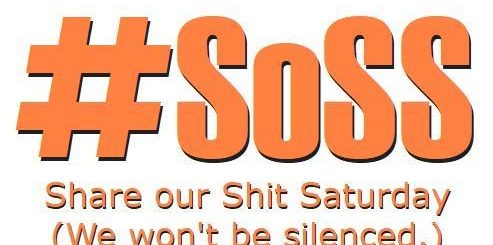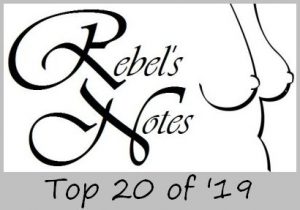I Read Poetry

You might have noticed by now that I am quite decently educated in the realm of literature. I am, and have always been, an avid reader. I have a degree in literary studies. And while I am generally considering myself a bit of a literature snob and don’t enjoy reading much popular fiction, I still have a few favourites even in that corner of the written word. I have a difficult connection with poetry though.
When I was younger, I avoided poetry. It might have to do with that most poems for children lack a certain type of depth. But the older I got, the more I discovered the beauty of poetry. I don’t mean those rosy love poems, or haikus, but more like those sort of writers who identified with being poets. One thing I always hated, although I am really good at it, is writing reviews or literary analysis of poetry. It destroys the reading of the piece for me. I don’t need to name the rhyme, to feel the rhythm. I don’t need to give you the names of the literary tools being used, nor do I need to tell you what sort of composition the poet chose.
Poetry is direct and personal, it is pure feeling and the beauty of words. It doesn’t have to tell a story. I like how it captures a moment, a movement, an image. Poetry is more open and free than prose, because the reader decides what it means.
I am quite good at writing poems, but they are not something I tend to plan to write. They are a spur of the moment thing. It feels like a push inside me to get the words out, to get the emotions out. My poems are painful and personal, and that is why I rarely share them. A poet is more vulnerable in baring their soul than any other kind of writer.
The poetry I enjoy doesn’t have to be good at rhyming. I just want it to make me feel. And I want to relate, to feel the atmosphere, the moment. I am not a lover of modernist poetry or haikus. And I loved when poetry was its own strong genre. These days, the good poets turn into musicians and write lyrics instead (which was the way the Ancient Greeks saw poetry anyway: words read or sung to the sound of music).
Karin Boye
Karin Boye, one of my favourite Swedish people of all time, was a very interesting person. She was most successful in the 1920s to the 1940s. Boye was openly lesbian and lived with her Jewish German girlfriend in Stockholm. She was also one of the first people in Sweden to be diagnosed with bipolar disorder. She died young due to an accidental suicide. Boye wrote one of the biggest European dystopian novels called “Kallocain”, which was a very open critique of the German national socialistic state. In Sweden, she is known for her poetry, which is a blend of pain and beauty. She captured the moment so well, as well as movement. My favourite poem by her is called “Ja visst gör det ont”, in the English version, “Of course it hurts”. Here is an excerpt from a decent translation:
Yes, of course it hurts when buds are breaking.
Why else would the springtime falter?
Why would all our ardent longing
bind itself in frozen, bitter pallor?
After all, the bud was covered all the winter.
What new thing is it that bursts and wears?
Yes, of course it hurts when buds are breaking,
hurts for that which grows
and that which bars.Yes, it is hard when drops are falling.
Trembling with fear, and heavy hanging,
cleaving to the twig, and swelling, sliding –
weight draws them down, though they go on clinging.
Hard to be uncertain, afraid and divided,
hard to feel the depths attract and call,
yet sit fast and merely tremble –
hard to want to stay
and want to fall.
Listen to me read the original Swedish version.
Rainer Maria Rilke
Rainer Maria Rilke is one of the most famous poets who wrote in German. He also wrote other sorts of literature and is well-known for his translations. Rilke was born in Austria, but lived all over Europe and could speak several languages. He died pretty young, in his early 40s, of leukemia. He wrote big, emotional and sometimes very sad poetry. One of my favourite pieces by him is called “Abschied”, which means “Parting” in English. Here is a translation:
How well I know just what it means to part.
And know it still – a dark, horrific thing,
and still a horror, once more tendering
the bond of beauty it will tear apart.How helplessly I’ve stood there, looking on,
as it, in calling me, just let me go,
to stay, like womanhood itself – not gone,
but small and white and nothing more than – oh,a wave, no longer even sent my way,
a gentle gesture waving on – and now
beyond explaining. Say, a damson bough
from which a cuckoo has just flown away
Listen to me read the orginal German version
Charles Baudelaire
Charles Baudelaire is by far my favourite poet. He lived a very tumulteous life with many ups and downs, suicide attempts, poverty and travelling. Baudelaire was sort of living a 19th century rockstar life and he didn’t seem to care what others thought of him. He dated, but never married, a Haitian (half-black) Burlesque dancer for over 20 years. Baudelaire died pretty young, in his 40s, of what was thought to have been Syphilis. My favourite poem by him is called “Spleen” from his famous Fleurs du mal collection. Here is a translation:
I have more memories than if I’d lived a thousand years.
A heavy chest of drawers cluttered with balance-sheets,
Processes, love-letters, verses, ballads,
And heavy locks of hair enveloped in receipts,
Hides fewer secrets than my gloomy brain.
It is a pyramid, a vast burial vault
Which contains more corpses than potter’s field.
— I am a cemetery abhorred by the moon,
In which long worms crawl like remorse
And constantly harass my dearest dead.
I am an old boudoir full of withered roses,
Where lies a whole litter of old-fashioned dresses,
Where the plaintive pastels and the pale Bouchers,
Alone, breathe in the fragrance from an opened phial.
Listen to me read the original in French
Sappho
Sappho has been widely accepted to be one of the first homosexual poets. While many still question if she really was lesbian (it is hard to tell, if you can’t really ask her yourself!), a lot of her poetry expresses strong homo-erotic images between women. What is remarkable about Sappho, who lived somewhere between 600 and 500 BC (!), in my eyes is that she was a female poet who was accepted by her contemporary peers. Women have always had a harder time to get literary recognition, and her fame really sticks out! Her poetry was to be accompanied by the lyre (that is where the term lyrics comes from by the way). Not a lot is left from her works, unfortunately, but the one that I have turned to many times, and that is also generally the most acclaimed one, is Fragment 31:
That man seems to me to be equal to the gods
who is sitting opposite you
and hears you nearby
speaking sweetlyand laughing delightfully, which indeed
makes my heart flutter in my breast;
for when I look at you even for a short time,
it is no longer possible for me to speakbut it is as if my tongue is broken
and immediately a subtle fire has run over my skin,
I cannot see anything with my eyes,
and my ears are buzzinga cold sweat comes over me, trembling
seizes me all over, I am paler
than grass, and I seem nearly
to have died.
I picked four poets who didn’t write in English to break the usual predominantly English-speaking sphere. But I am also a fan of some English and American poets. Edgar Allen Poe, John Keats and Walt Whitman, just to name a few. I wonder if poetry is ever going to be a genre for the masses again. Maybe it is music which brings the wonderful beauty of the shorter lyrical works to the world these days. Just like it did over 2000 years ago.











Wonderful post Devie. I am so pleased you included writers who write primarily in a different language.
I have long been a fan of Charles Baudelaire. I think he has a tag on my blog.
When I first started blogging I was friends with a very insightful blogger called Michael Samadhi. He disappeared. But he wrote a fantastic article about Baudelaire’s life. I checked but it is now a 404.
I do hope the masses return to poetry too. So many things keeping them away…
So I will leave you with this.
Don’t be martyred slaves of time.
Get Drunk.
Stay Drunk!
On wine, virtue, poetry, whatever!
xx
Thanks, May! Baudelaire has been one of my favourites ever since I was a teen. There is something beautifully gloomy about his work that draws me in.
Ha, that little poem definitely works for all sorts of times!
it’s all your reading that makes you such a wonderful writer
Maybe you are right! Thank you, Sindee <3
I loved your reading in German. You are an excellent writer and narrator!
Thank you! <3
Wonderful. I loved listening to all your recordings. What a gift you have to be multi-lingual!
Thank you! I was sort of forced to be multi-lingual, with moving countries so much 😛